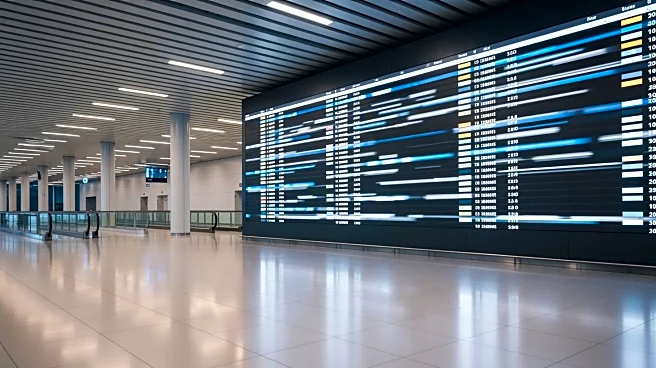What's Happening?
Page's Building Performance team has introduced an AI-driven framework to transform building energy modeling (BEM) into a faster, smarter, and more performance-focused process. This innovation aims to close the gap between creativity and performance in sustainable
building design. The AI-assisted framework provides real-time feedback on energy use, carbon impact, and daylighting, enabling rapid iteration and optimization during the design phase.
Why It's Important?
The integration of AI in energy modeling represents a significant advancement in sustainable building design. By providing real-time feedback, architects can optimize energy efficiency early in the design process, potentially reducing environmental impact and operational costs. This approach aligns with the growing demand for sustainable practices in the construction industry, offering a competitive edge to firms that adopt AI-driven solutions.
What's Next?
As AI continues to evolve, the construction industry may see further innovations in energy modeling and sustainable design practices. Companies may invest in training and development to help architects and designers adapt to new technologies, ensuring that AI-driven solutions are effectively integrated into their workflows.
Beyond the Headlines
The use of AI in energy modeling raises ethical considerations regarding data privacy and the potential for biased outcomes. Organizations must ensure that AI systems are transparent and do not inadvertently lead to negative environmental impacts. Additionally, the cultural shift towards AI-driven design may require changes in industry standards and practices.














